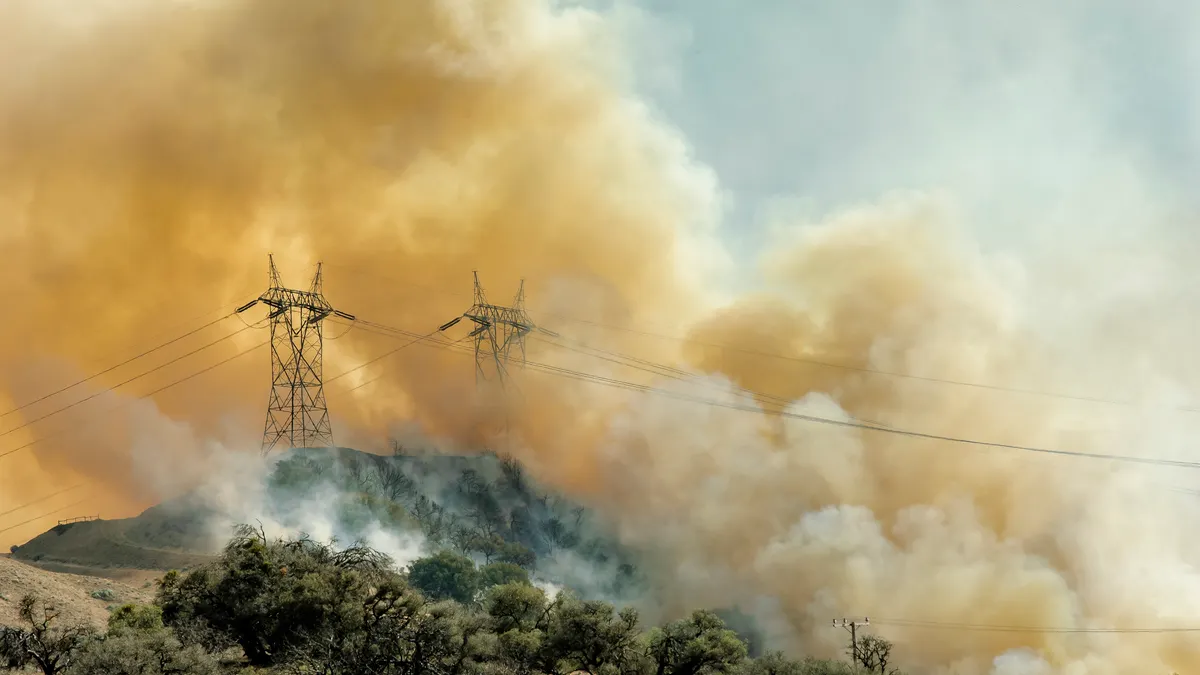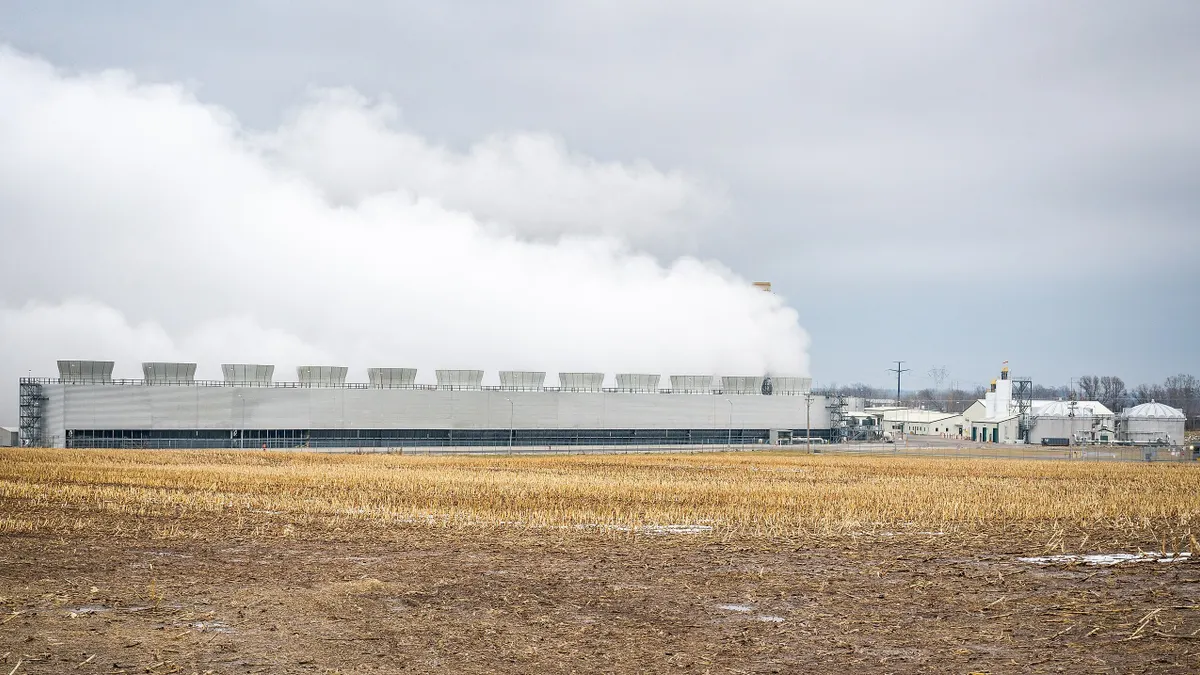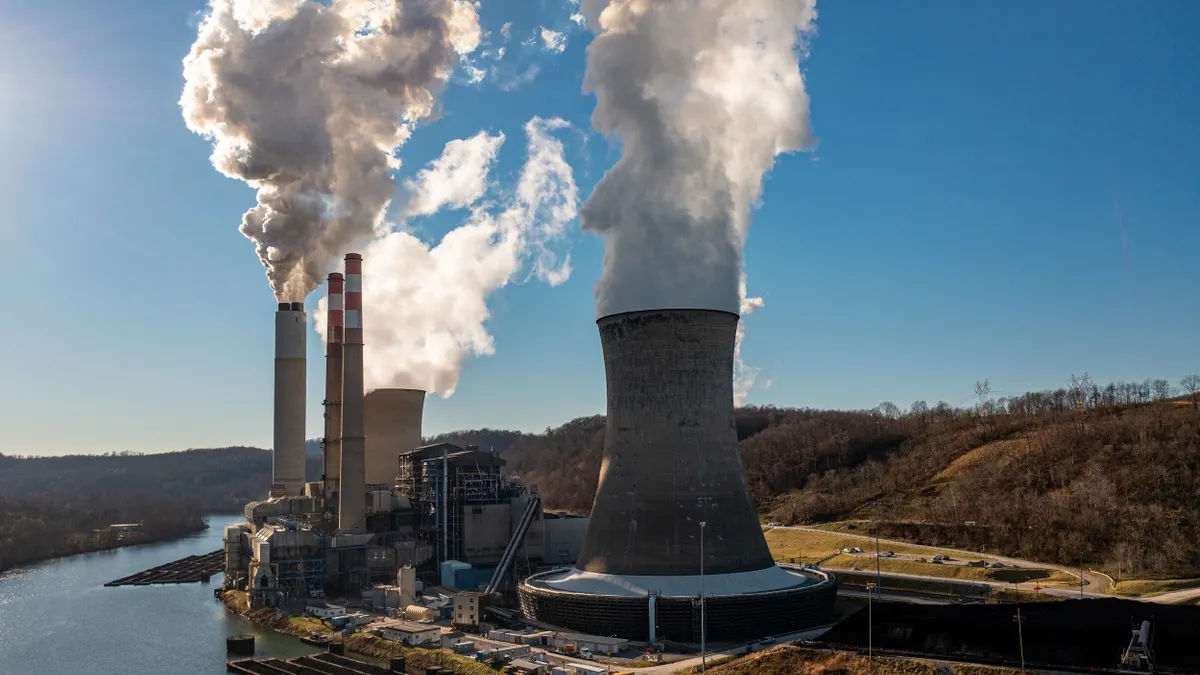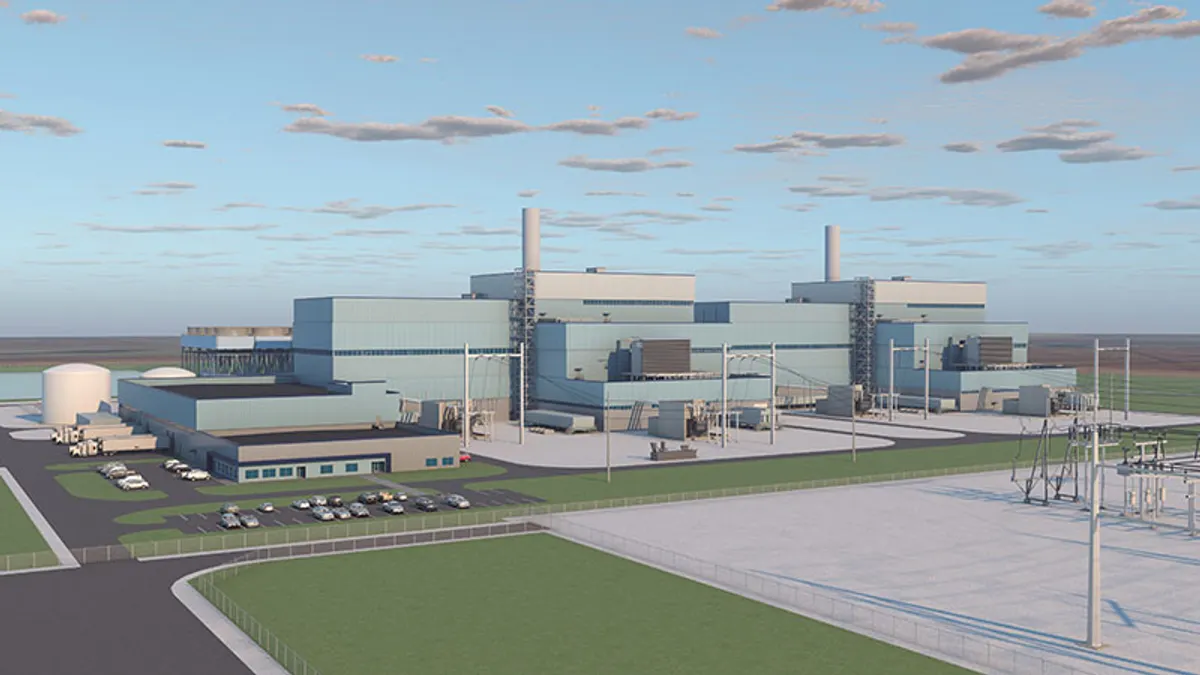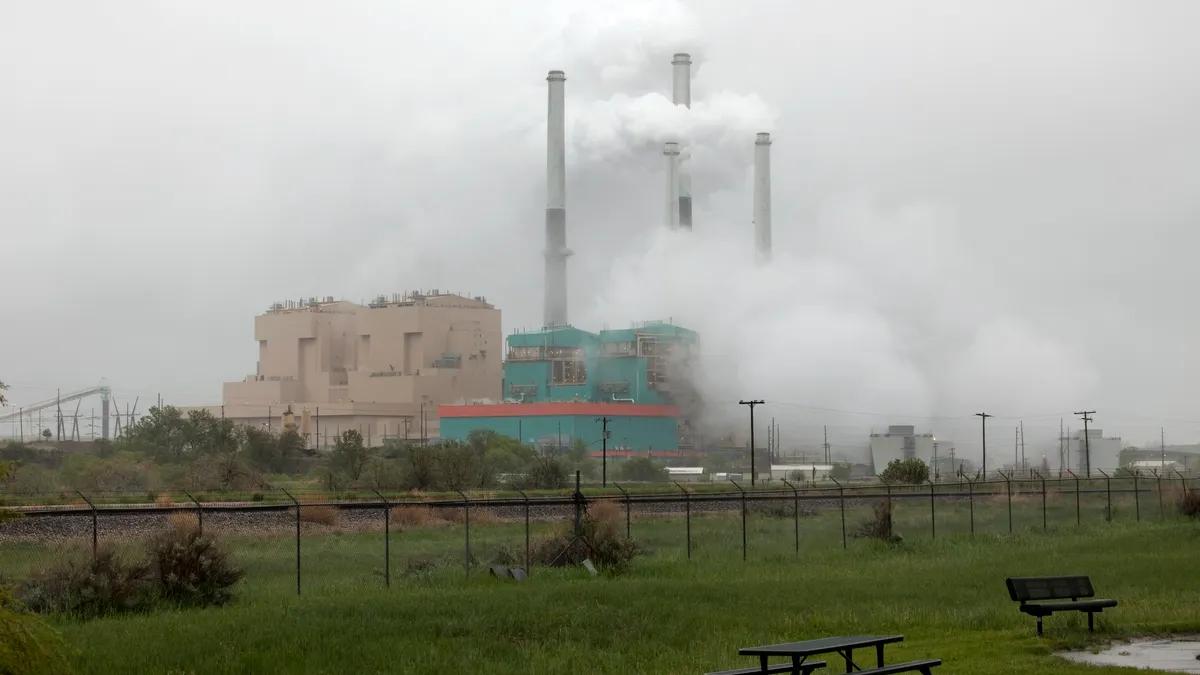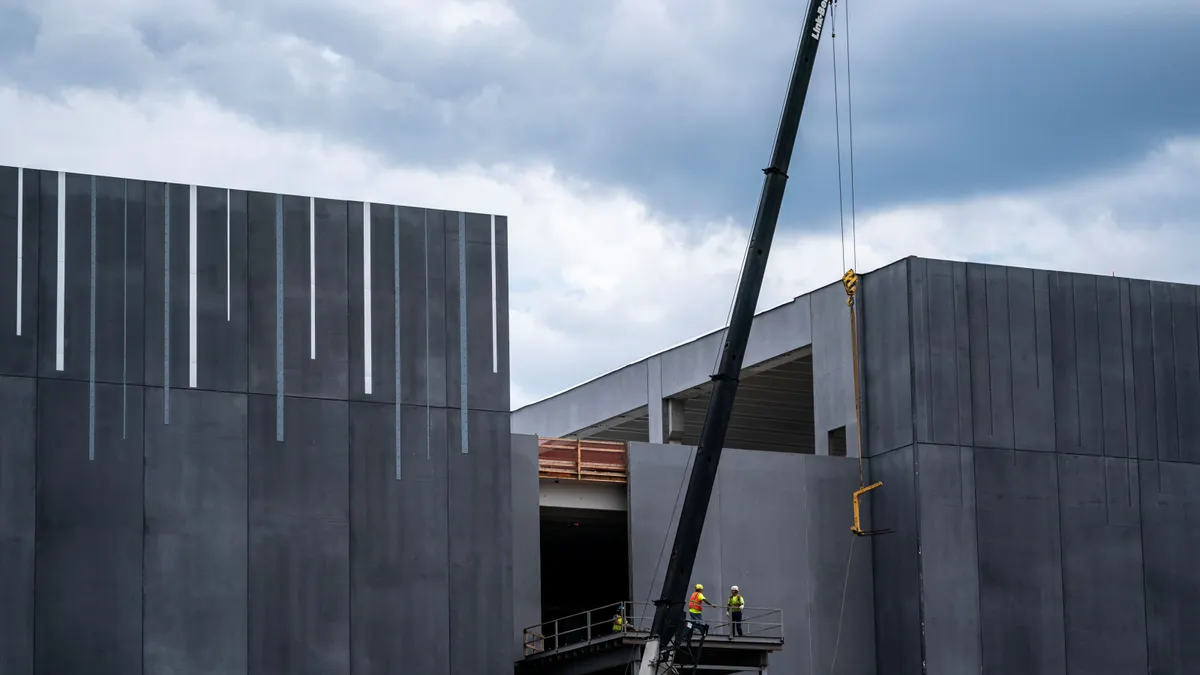The Federal Energy Regulatory Commission should limit who pays for the U.S. Department of Energy’s decision to keep a coal-fired power plant in Michigan operating past its planned retirement, according to comments filed at the agency on Friday.
Further, there is no evidence that delaying the retirement of Consumer Energy’s majority-owned, 1,560-MW J.H. Campbell power plant will provide benefits to ratepayers in the Midcontinent Independent System Operator footprint, according to the Citizens Utility Board of Illinois and 15 other public interest groups.
Forcing MISO customers to pay for a power plant that does not benefit them would violate the Federal Power Act’s cost causation requirement, the groups said in their comments, which was filed by the Environmental Law & Policy Center on behalf of the coalition.
On May 21, DOE declared that there is an energy emergency in MISO’s northern and central regions and ordered that the Campbell plant should run until Aug. 21, past its planned May 30 shutdown date. The Michigan attorney general’s office and a coalition of advocacy groups last week asked DOE to reverse its order.
Consumers Energy on June 6 filed a complaint at FERC seeking to establish a pathway for it to recover its costs to keep the plant in Michigan running. Currently, MISO lacks a mechanism to pay generators that run under DOE emergency orders, and the grid operator has no way to allocate those costs, according to Consumers. Consumers proposed allocating its costs related to DOE’s decision to ratepayers in MISO zones 1 to 7, which covers parts of Michigan, Indiana, Kentucky, Illinois, Missouri, Iowa, Wisconsin, Minnesota, North Dakota, South Dakota and Montana.
MISO supported creating a cost-recovery mechanism for the DOE’s order on the Campbell plant, according to a filing at FERC.
MISO said it did not intend to contest DOE’s characterization that a shortage of electricity or power plants has triggered an emergency in its footprint. However, MISO’s capacity auctions cleared enough generating capacity to meet its reliability needs this summer, the grid operator said.
MISO has worked with its members, state utility regulators, FERC and others to develop policies and processes that address its immediate and future capacity needs, according to the regional grid operator. “MISO is confident that these collaborative efforts do not require further intervention and will help ensure the region continues to procure sufficient capacity to meet demand,” it said.
The Michigan Public Service Commission said it “adamantly disputes” there is an energy emergency in the region. However, the agency agrees with Consumers Energy that the costs from the DOE order should be spread to MISO zones 1 to 7, because the order is directed at MISO’s northern and central zones, according to the agency’s comments.
The Illinois Commerce Commission said that without “a clear and substantiated connection between the continued operation of the Campbell Plant and specific, measurable benefits to identified customers and regions, it would be neither just nor reasonable to assign those costs to any state, zone, or broader footprint.”
Keeping the Campbell plant online will unnecessarily increase consumer energy costs when they are already rising, the ICC said. “Even worse, consumers will bear these costs for no measurable reliability benefit,” the agency said.
The ICC urged FERC to direct Consumers Energy to provide cost and benefit information, and to order MISO to launch a stakeholder process to set a cost recovery mechanism for the Campbell plant.
Costs related to keeping the Campbell plan running should be limited to MISO zone 7, which covers part of Michigan, according to Great River Energy, a wholesale generation and transmission cooperative with utility members in Minnesota and Wisconsin.
“Like other similarly situated [load-serving entities,] GRE’s customers in MISO Local Resource Zones 1 and 3 do not directly benefit from the availability or operation of the Campbell plant and should not be responsible for any of its costs,” Great River said.
If FERC decides the costs of complying with the DOE order should be spread across MISO zones, the agency should reject the Consumers Energy’s complaint and direct the grid operator to launch a stakeholder process to address the cost allocation issue, Great River said.
A coalition of energy user groups also called for a MISO-led stakeholder process, noting that the PJM Interconnection has launched one to consider how to allocate costs related to another DOE 90-day emergency order affecting a Constellation Energy power plant in Pennsylvania.
“The commission should find that a just and reasonable cost recovery mechanism should be included in the MISO tariff, but allow for a review and investigation into the policy, technical, and factual issues raised by the [Consumers Energy] complaint — on an expedited basis at the Commission and in a new MISO stakeholder process — prior to issuing an order in response to Consumer Energy’s proposed cost recovery mechanism,” the Coalition of MISO Transmission Customers, the Association for Businesses Advocating Tariff Equity, the Resale Power Group of Iowa and Midwest Large Energy Consumers said in a joint filing.





